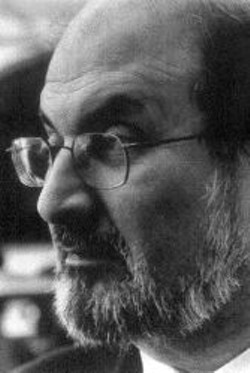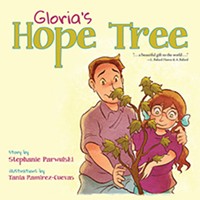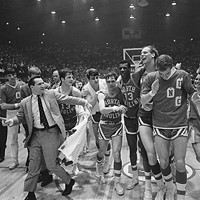Such less-than-reverential but insightful sentiments dominate Rushdie's Step Across This Line, a stellar essay collection that makes up for last year's surprising literary misstep, the dreadful novel Fury. Since the ayatollah's fatwa, or death sentence, against Rushdie and his famously infamous novel The Satanic Verses, millions know the author and his book from news accounts rather than from reading his work. (The fatwa began on Valentine's Day 1989, sending the author into hiding with armed guards. It ended in September 1998 at the UN General Assembly in New York.)
This nightmare form of celebrity often threatens to eclipse India's sublime British export, a multicultural literary magician who dazzles, cajoles, flatters and, in book after book, displays sheer genius.
This isn't to say Rushdie is infallible, by any means. Fury displayed a jaw-dropping lack of perspective, a middle-aged man's embarrassing obsession with lascivious bombshells and, most fatal, an implausible plot that showed its creator in an unflattering light, wrestling with matters too superficial for one so gifted. Happily, this sort of thing only crops up on occasion in Step Across This Line. One example: A tossed-off essay describing what it's like to be shot by the famous fashion photographer and portraitist Richard Avedon.
But there is too much right -- and, at times, brilliant -- in this collection to spend much time carping over a few faux pas. Rushdie begins with an elegant essay on the film version of The Wizard of Oz, his inspiration for storytelling. He recalls the movie prodding a 10-year-old Bombay boy's first, clumsy short story, one that included a hybrid of Judy Garland, Elvis Presley and the "playback singers" of the Hindi movies.
Genuine adoration for Oz flows from each sentence, every observation. The visual motif, Rushdie reports, reflects the simple goodness of home through simple geometry: the parallel lines of a wooden fence, the triangle serving as the dinner bell, the Kansas house, all right angles and triangles. And the bad? Twisty, irregular, misshapen, as any glimpse of the knotty trees in the forest reveals.
"Over the Rainbow," Judy Garland's, and the movie's, signature moment, runs counter to the scriptwriters' insistence that there's no place like home, Rushdie asserts. Then comes the needle: "That "Over the Rainbow' came close to being cut out of the movie is well known, and proof that Hollywood makes its masterpieces by accident, because it doesn't really know what it is doing."
In Rushdie's eyes, "what (Garland) embodies with the purity of an archetype, is the human dream of leaving, a dream at least as powerful as its countervailing dream of roots." The dream, in other words, of an immigrant, a constant theme in Rushdie's work (most prominent in Midnight's Children, The Satanic Verses and The Ground Beneath Her Feet).
Rushdie's ruminations on Oz display his agile, playful mind -- a mind that engages all manner of observation, alternately making the trivial weighty and the weighty trivial.
Nothing is sacred for Rushdie, a man who is intellectually insatiable if unorthodox. Rushdie happily dissects and digresses on all matters of interest: immigrants, those lovable fundamentalists, reality TV, the disputed American election of 2000, the new world ushered in by 9/11, U2, Amadou Diallo, the Rolling Stones, Elian Gonzalez, the magic of soccer, it's all here.
Reflecting on the death of Princess Diana, he reminds those who tut-tut about the relentless paparazzi of their own complicity: "What newspaper do you read? When you saw the pictures of Dodi and Diana cavorting together, did you say, that's none of my business, and turn the page?"
Fittingly, freedom of speech engenders not only passion but intense eloquence. This is a man amazed at his plight, but self-aware enough to realize that the larger issues of free speech and free thought hang in the balance. He senses the responsibility and demands of the role. Above all, Rushdie knows he's merely the most visible symbol of intellectual persecution. He makes it clear that numerous poets, novelists, professors, journalists and other dissenters suffer the slings and arrows of censorship, torture, even successful fatwas, in the service of free speech.
Even the comparative folderol of rock & roll can't enervate Rushdie's muscular prose. Upon watching Mick Jagger and Keith Richards lead the Stones through a riff-roaring stadium show a few years back, he proclaimed the geriatric bad boys pop-cultural DNA.
According to Rushdie, ". . . We may even be able, by now, to pass the knowledge on genetically to our children, who will be born humming "how come you dance so good' and those old satanic verses, "pleased to meet you, hope you guessed my name.'"
Those who may have considered Rushdie a devil -- and the place he considered hell -- reached a truce with their notorious Man of Letters two years ago. Long at odds with his home country, Rushdie returned to India and began repairing bruised feelings.
"A Dream of Glorious Return," written two years ago, recounts that homecoming and its related adventures. Perhaps in this essay, more than any other, the facade of the omniscient master of stories falls away, replaced by sheer ebullience. Rushdie feels his "happiness rising like a tropical dawn, fast and brilliant and hot. There are few such moments in a lifetime. Forgive me for saying perhaps too much about this one. It is a rare thing to be granted your heart's desire."
That rare thing is deserved. After all, how many authors, no matter how rare their talent, face a decade-long death threat? As his pal Bono might say, it's a beautiful day, Salman, don't let it get away.
Latest in Books
More by Erik Spanberg
-
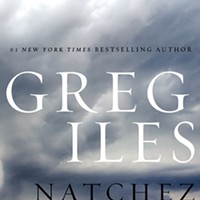
Book review: Natchez Burning
Jul 2, 2014 -
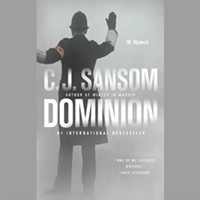
Book review: Dominion
May 16, 2014 -
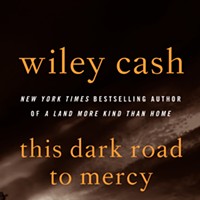
Book review: Wiley Cash's This Dark Road to Mercy
Mar 21, 2014 - More »
Calendar
-

WHISKEY TASTING: VIRGINIA HIGHLANDS WHISKY @ Elizabeth Parlour Room
-

NEW WINDOW GALLERY-Pat Rhea-ACRYLIC PAINTINGS-April 05-30 2024 VALDESE, NC 28690 @ New Window Gallery/Play It Again Records
- Through April 30, 12 p.m.
-
An Evening With Phil Rosenthal Of "Somebody Feed Phil" @ Knight Theater
-
Kountry Wayne: The King Of Hearts Tour @ Ovens Auditorium
-
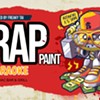
Trap & Paint + Karaoke @ Zodiac Bar & Grill
-
Jessica Moss Makes the Gantt Center a Safe Zone for Local Artists 2
Flipping the script
-
Halo 4 earns critical hallelujahs
Plus, news on Mass Effect Trilogy, LEGO: The Lord of the Rings
-
Shaking it up in The Next Room, or The Vibrator Play 1

